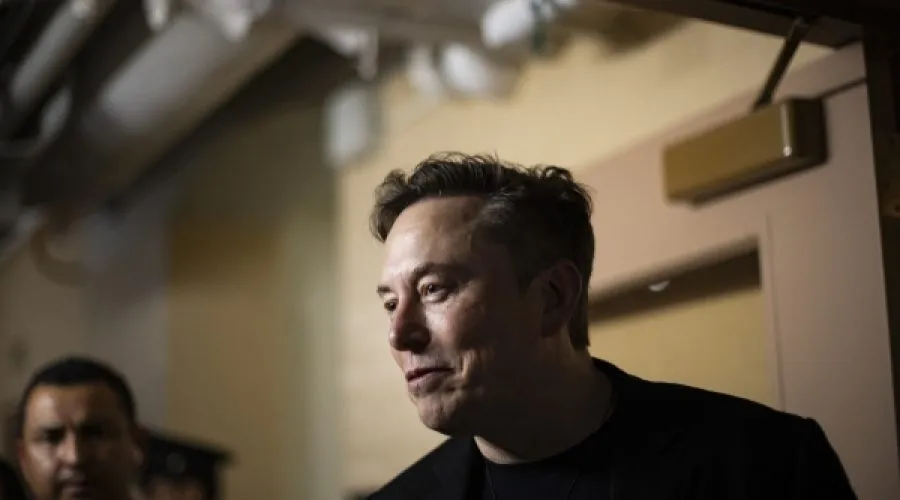Elon Musk’s $1 Trillion Pay Package: What It Signals for Investors and Business Leaders
Tesla shareholders approved a compensation plan on Thursday that could make Elon Musk the world’s first trillionaire, just two days after New Yorkers elected a mayor advocating higher taxes on the wealthy.
This contrast highlights diverging perspectives in America on wealth distribution and economic opportunity. Tesla, headquartered near Austin, Texas, reflects a winner-takes-all capitalist model. Shareholders overwhelmingly agreed to award Musk shares valued at nearly $1 trillion if Tesla meets ambitious financial and operational milestones over the next decade.
Meanwhile, in New York—the financial hub of the country—Zohran Mamdani, a democratic socialist, won the mayoral race campaigning on taxing the rich to fund universal child care and improved public transportation. His victory signals widespread frustration with an economic system that leaves many Americans struggling with basic needs such as housing, food, and child care.
Tesla’s new 12-step pay package requires Musk to increase Tesla’s market valuation from about $1.4 trillion to $8.5 trillion, with additional targets including the sale of 1 million humanoid robots and 10 million paid subscriptions for its self-driving software. Musk described the plan as the start of not just a new chapter for Tesla, but “a whole new book.”
Supporters, including Tesla’s board and some investors like Florida’s public pension fund board, view the compensation as motivation for Musk to continue pioneering innovative products such as autonomous vehicles. The Florida State Board of Administration emphasized that Tesla’s history of extraordinary growth justifies such ambitious incentives.
Ark Invest CEO Cathie Wood also defended the package, stating that investors would benefit greatly if Musk and his team meet these high goals.
Opponents of the plan, including public pension fund officials from New York and California, criticized it as excessive and a harmful concentration of wealth and power. New York State Comptroller Thomas DiNapoli labeled it “pay for unchecked power,” while even Pope Leo XIV commented that Musk’s compensation reflects growing wealth inequality. The median Tesla employee earned around $57,000 in 2024.
Musk responded by highlighting Tesla’s humanoid robot, Optimus, as a potential solution to societal issues like poverty, though the product remains in development.
The plan’s passage was anticipated. Musk, who holds approximately 15% of Tesla’s stock, was allowed under Texas law to vote his shares, potentially increasing his ownership to nearly 29% if he meets the plan’s conditions, though he might need to sell stock to cover taxes.
Some large investors, including Norway’s sovereign wealth fund, opposed the plan citing concerns over its size, dilution effect, and excessive company reliance on Musk. Other critics argued the Tesla board had too much discretion to award shares regardless of goal achievement, a claim the board denied.
Robyn Denholm, Tesla’s board chair, stated the package is intended to “supercharge Tesla’s next phase of exceptional growth, innovation and value creation,” emphasizing that Musk will receive additional voting rights only if he meets specific market and operational goals.
This vote follows legal challenges to Musk’s 2018 compensation plan, which a Delaware judge recently invalidated for flawed approval processes. Tesla has appealed.
Musk’s victory is likely to further fuel political debates about wealth disparity, with Democrats framing him as a symbol of the financial elite. Ben Wikler, former chair of the Democratic Party of Wisconsin, remarked that Musk’s rise intensifies the divide between ordinary voters and the billionaire class.
Shareholders also passed a nonbinding proposal encouraging Tesla to invest in Musk’s AI company, xAI. Tesla’s board will consider the next steps, with many investors abstaining on this issue.
This article originally appeared in The New York Times.
Special Analysis by Omanet | Navigate Oman’s Market
Tesla’s unprecedented $1 trillion pay plan for Elon Musk underscores a bold vision for innovation and market dominance but also highlights deep societal divides over wealth concentration. For businesses in Oman, this signals an era where ambitious, tech-driven growth models can yield enormous rewards, yet smart investors must weigh the risks of centralized executive power and socio-economic backlash. Entrepreneurs should consider opportunities in AI and automation, while advocating for balanced growth that addresses social equity alongside futuristic ambitions.



